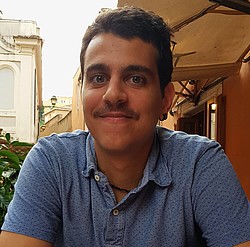Vassilis Digalakis Jr.
Title
The Backbone Method for Ultra-High Dimensional Sparse Machine Learning
Abstract
In this talk, we present the backbone method, a generic framework that enables sparse and interpretable supervised machine learning methods to scale to ultra-high dimensional problems. We solve, in minutes, sparse regression problems with p~107 features and decision tree induction problems with p~105 features.
The proposed method operates in two phases; we first determine the backbone set, that consists of potentially relevant features, by solving a number of tractable subproblems; then, we solve a reduced problem, considering only the backbone features.
Numerical experiments demonstrate that our method competes with optimal solutions, when exact methods apply, and substantially outperforms baseline heuristics, when exact methods do not scale, both in terms of recovering the true relevant features and in its out-of-sample predictive performance.
About the Speaker
Vassilis Digalakis Jr. is a PhD candidate at MIT’s Operations Research Center, advised by Prof. Dimitris Bertsimas. Prior to joining MIT, he earned his Diploma in Electrical and Computer Engineering from the Technical University of Crete, Greece, in 2018, where he worked with Prof. Minos Garofalakis and Prof. George Karystinos.
Vassilis’s research interests lie at the intersection of machine learning and optimization, with application to big-data settings. His recent research has focused on developing scalable and interpretable methods to address central problems in the machine learning literature (e.g., sparse regression, decision tree induction, clustering, time-series forecasting), and on using machine learning to augment and enhance the performance of classical algorithms. He has also worked on developing differentially-private algorithms for streaming and distributed datasets.
For the duration of the COVID-19 crisis, his research group has been working on developing and deploying software tools for use by hospitals, government officials, and healthcare institutions to combat the spread of COVID-19 (you can learn more at covidanalytics.io).





